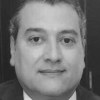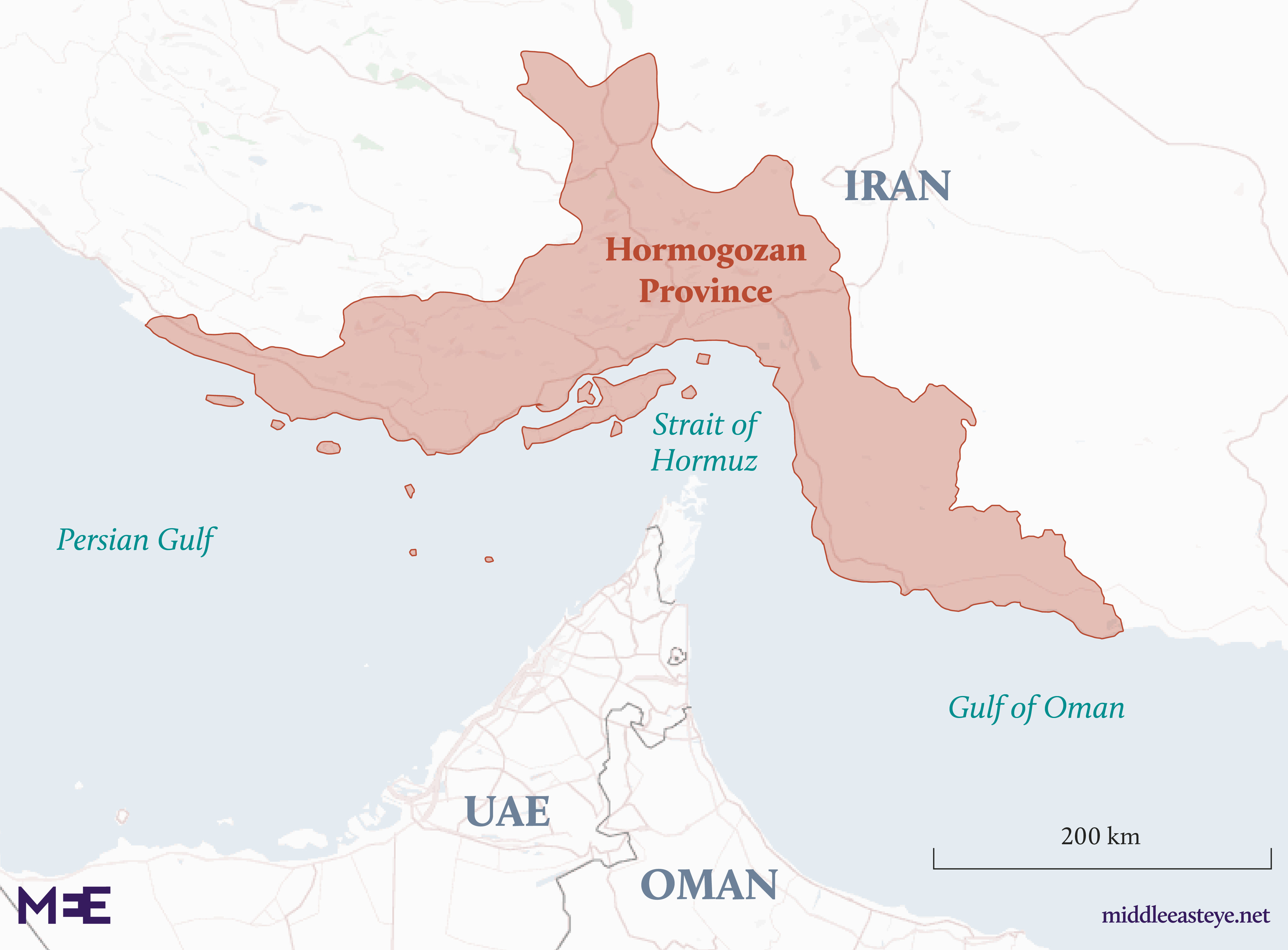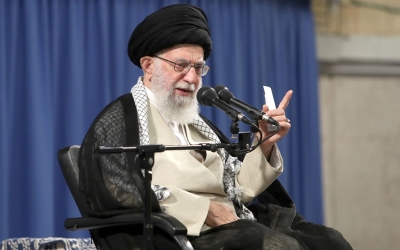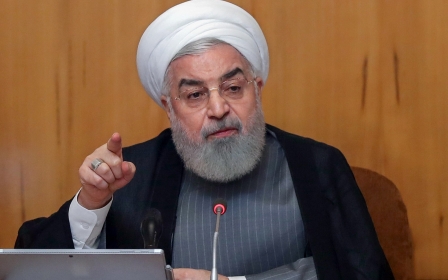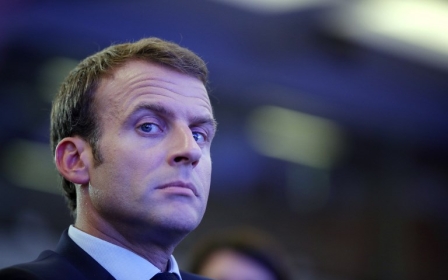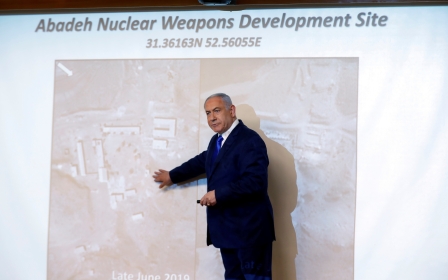Macron's Iran diplomacy aims to limit Tehran's growing influence
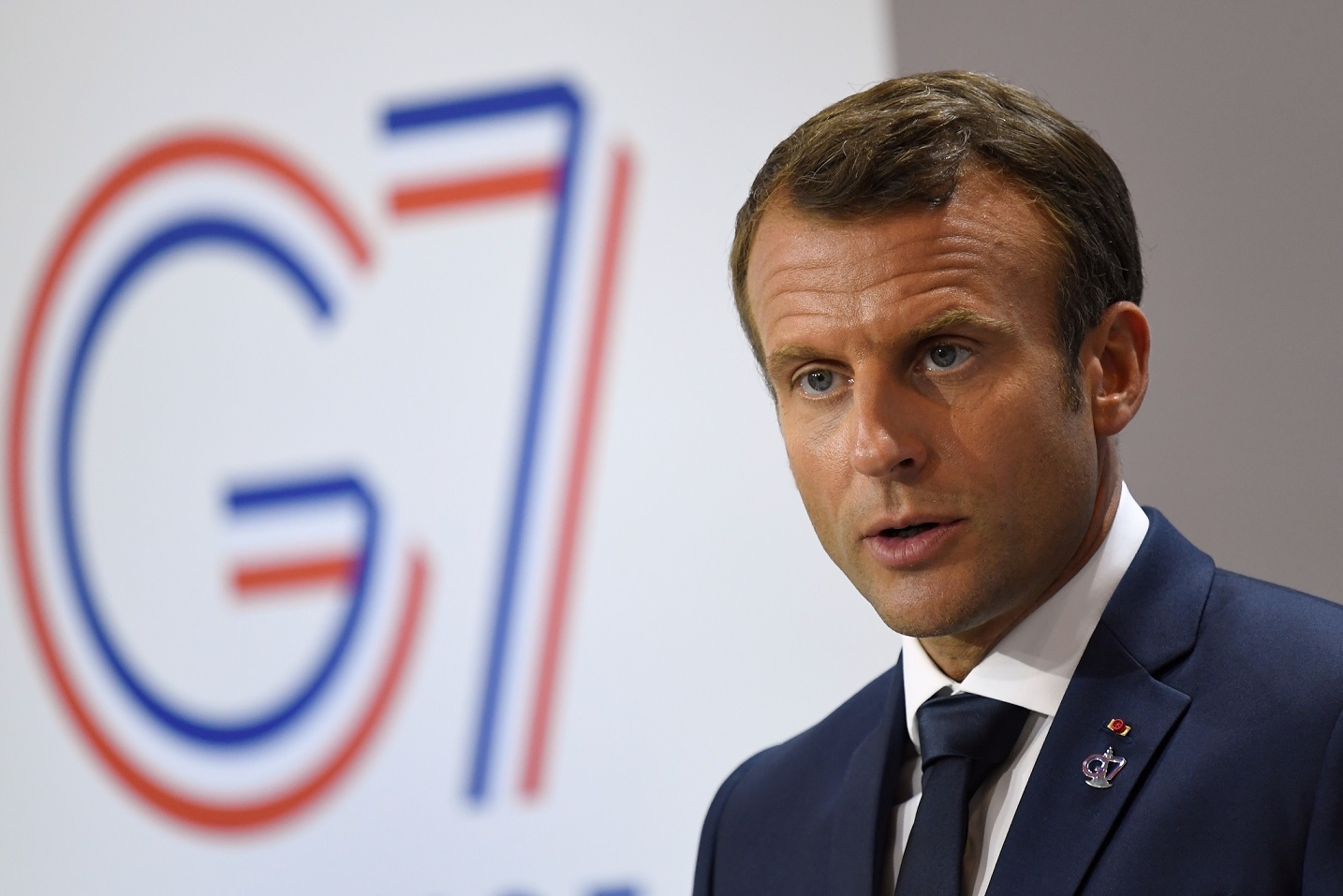
While the August G7 Summit in the southern city of Biarritz, France, was quietly coming to an end, nobody expected to see an A321 Airbus from the official fleet of the Iranian government land at the city airport.
Among its passengers was Iranian Foreign Minister Mohammad Javad Zarif, who was received by French President Emmanuel Macron and his close associates, including diplomatic chief Jean-Yves Le Drian.
This surprise visit would not have been wrapped in secrecy without the sense of urgency created by the recent military developments on the Iraqi, Syrian and Lebanese fronts.
Risking a rogue state
All signs indicate that the Israeli air strikes conducted alongside the Biarritz summit, targeting Iranian and Hezbollah sites in Iraq, Syria and Lebanon, were intended to sabotage the G7 efforts on the Iranian file.
Israel is opposing every sign of detente vis-a-vis Tehran, while France, out of pragmatism, is trying to convince its partners not to exclude Iran from the community of nations, which could risk turning it into a rogue state with unpredictable behaviour.
Iran's active diplomacy in pursuit of constructive engagement continues.
— Javad Zarif (@JZarif) August 25, 2019
Met @EmmanuelMacron on sidelines of #G7Biarritz after extensive talks with @JY_LeDrian & Finance Min. followed by a joint briefing for UK/Germany.
Road ahead is difficult. But worth trying. pic.twitter.com/oXdACvt20T
Macron is thus encouraging France’s partners to activate the Instex economic mechanism that France, Germany and the UK created in January to circumvent US sanctions by making it possible to continue trading with Iran without using the US dollar.
The Israeli strikes might have ruined these European initiatives, but the French establishment quickly regained control by calling Zarif to Biarritz, where it laid its cards on the table and offered the Iranians a deal: committing to an economic overture if Tehran can keep the Revolutionary Guards and Hezbollah quiet. (They had vowed retaliation against the Israeli incursions.)
Two birds with one stone
Indeed, while Zarif and Macron were holding high-level meetings, Hezbollah leader Hassan Nasrallah was threatening Israel with retaliation after the recent strike on southern Beirut, Hezbollah's stronghold.
Hitting two birds with one diplomatic stone, Macron thus managed to talk business with Iran’s diplomatic chief, while enabling France’s ally, Israel, to avoid escalating the situation militarily.
Since the 2018 US withdrawal from the Iran nuclear deal, Tehran has been suffering from Washington’s severe economic and political pressure, the alleged goal of which is to dissuade Tehran from developing an atomic bomb and furthering its mid- and long-range ballistic missile programme. The embargo against Iran is also intended to limit its increasing geopolitical influence in various parts of the world.
Despite the international embargo, Iran remains more than ever a powerful player that cannot be ignored
Despite the international embargo, Iran remains more than ever a powerful player that cannot be ignored. An ally of Russia and China, as well as an important producer of hydrocarbons, its influence now extends from Afghanistan to the Mediterranean.
Despite a strong US military presence thanks to the Sixth Fleet, the eastern side of the Mediterranean is under multiple influences: Russian, Israeli, Turkish, Egyptian and Iranian, through Hezbollah. Iran now has direct access to the Mediterranean Sea, all the way to the Strait of Gibraltar, via Syria and Lebanon.
Military presence
Besides controlling the strategic Strait of Hormuz, Iran maintains a strong presence in the Gulf, from the delta of the Tigris and Euphrates in Iraq to Bahrain, the base of the US Fifth Fleet.
Iran also keeps a significant military presence on the southern and southwestern sides of the Arabian peninsula, from the Gulf of Oman and Yemen, to the strait of Bab-el-Mandeb. It is actively seeking new positions in the Red Sea, which directly threatens Israel via the strategic city of Eilat, not far from the port of Aqaba, Jordan.
It was precisely on behalf of France’s Israeli ally that Macron swiftly started a dialogue with Iran, without even waiting for his G7 international guests to be back in their countries. His goal was to anticipate, and defuse, such “apocalyptic scenarios” for Israel.
Meanwhile, US President Donald Trump, who usually opposes aggressively any detente with Iran, reacted with a mere “no comment” when he learned that his French counterpart had met Iran’s foreign minister.
Provided they are in the interests of Israel’s “survival”, all these French overtures are perfectly acceptable.
The views expressed in this article belong to the author and do not necessarily reflect the editorial policy of Middle East Eye.
This piece has been translated from the MEE French edition.
Middle East Eye propose une couverture et une analyse indépendantes et incomparables du Moyen-Orient, de l’Afrique du Nord et d’autres régions du monde. Pour en savoir plus sur la reprise de ce contenu et les frais qui s’appliquent, veuillez remplir ce formulaire [en anglais]. Pour en savoir plus sur MEE, cliquez ici [en anglais].


